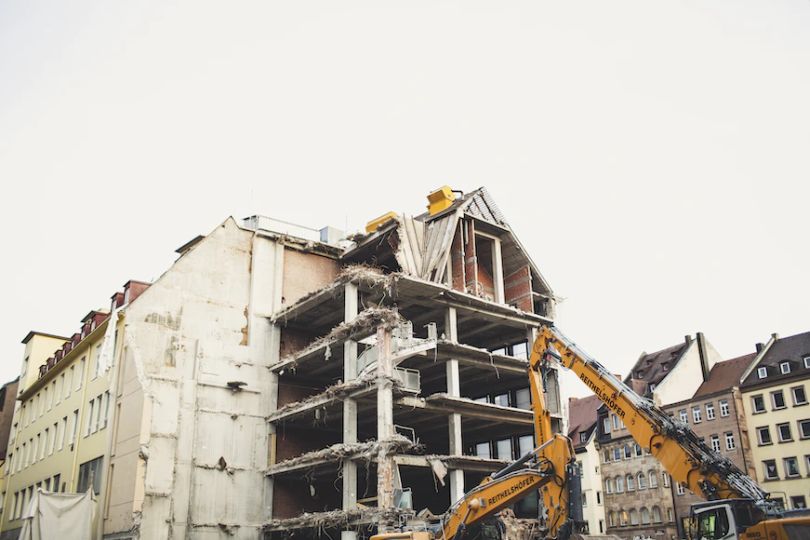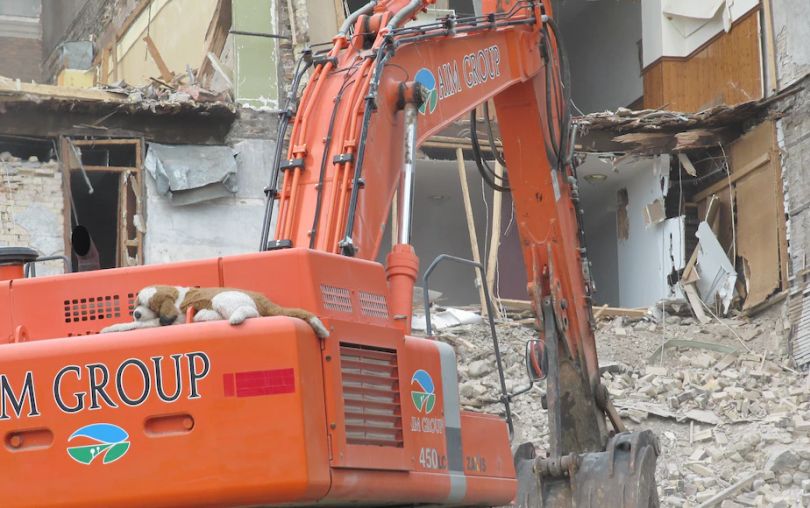6 Important Things To Know When Removing Commercial Property
The need to bring down a building for whatever reason entails a lot. You want to ensure that you factor in safety, legal requirements, and environmental factors that may come into play when removing commercial property. Going by the size of the building to be demolished and its position in a commercial space, know that you have some considerations to remember when removing commercial property. Here are six critical things you need to know.

1. Hire a Professional Demolition Contractor
Demolishing a commercial building can be a complex process. It requires knowledge of engineering principles and safety regulations to do it properly. Therefore, it is a good idea to hire an experienced demolition contractor who is familiar with the local laws and regulations.
These professionals will have the right tools and equipment to carry out a safe and efficient demolition job. They should also be able to advise you on how best to comply with building codes in your area. The best contractor for commercial demolitions will begin the project after planning everything. This is where they look at the height and volume of the building and the type of materials it is made from. As a result, it becomes effortless to decide on the best way of taking the building down.
2. Check For Utilities
These are vital services that ought not to be maintained during or after demolishing a construction. Before beginning any demolition work, it’s vital to ensure that all power lines and utility connections are disconnected appropriately. This will help shield workers from being electrocuted or injured in any way.
Also, double-test that no fuel lines are running to the building as they could be dangerous and cause explosions if not appropriately treated. If you have multiple kinds of utility connections, ensure you have disconnected them before proceeding with the demolition.
Apart from the fundamental utilities, also make sure to check for any specialty connections like satellite TV dishes and different statistics services. It consists of preserving the installations secure and comfortable as they’re eliminated. This keeps away any disruptions to the offerings or statistics that could come because of the demolition.
3. Check Building Codes
Before beginning any demolition process on business assets, consider testing all relevant nearby building codes. This is to make sure that the method is within the legal requirement and that each protection policy is followed. Constructing codes may be distinct among states, so ensure you understand what applies to your place.
Failure to conform with the building codes can typically bring about a hefty fine. Thus, it’s essential to stick to the game’s rules. Further, make sure to have the proper permits while casting off a commercial property.
4. Check Land Contamination
Whilst demolishing a building, there’s usually the opportunity that the floor may be infected with hazardous substances like asbestos or lead. It’s far crucial to, thus, check what form of contaminants are present within the land. Whenever you discover any contaminants, ensure that the elimination is performed correctly and appropriately. This is through local legal guidelines.
As you think of the protection measures to take, remember the safety of people and different folks who may be near the demolition site. Ensure the whole team wears the essential protective equipment while managing hazardous substances.
5. Check Structural Integrity
You could additionally need to test the structural integrity of the construction, mainly if a significant component is being demolished. This will help ensure the demolition technique goes smoothly and safely without surprising incidents. You could hire an engineer or inspector to survey and check the property before beginning the demolition method.
With the information on structural integrity, knowing which strategies you’ll employ inside the process may be more accessible. Usually, if dealing with materials with excessive mechanical power, you’ll want equipment that’s up to the project. Failure to do this could make the removal much more time-consuming.
6. Think Of The Waste

Since demolition involves breaking down brick and mortar, it’s crucial to remember where the waste will pass. You want to be privy to any local guidelines and laws that could come into play with regard to waste disposal from commercial houses.
You can rent a waste management business enterprise to attend to the disposal after demolition is finished. Work with them to ensure that every guideline is followed and that the waste is disposed of in an environmentally friendly way.
As you think of the waste, also recollect any recyclable substances that may come out of the demolition technique. Those substances may be recycled, which helps lessen waste going to landfills and lowers your carbon footprint.
When removing a commercial property, there are various things to consider, such as safety measures, structural integrity, and waste disposal. Therefore, it is crucial to hire a professional demolition contractor who can advise you on how best to comply with local laws and regulations to complete the job safely.
